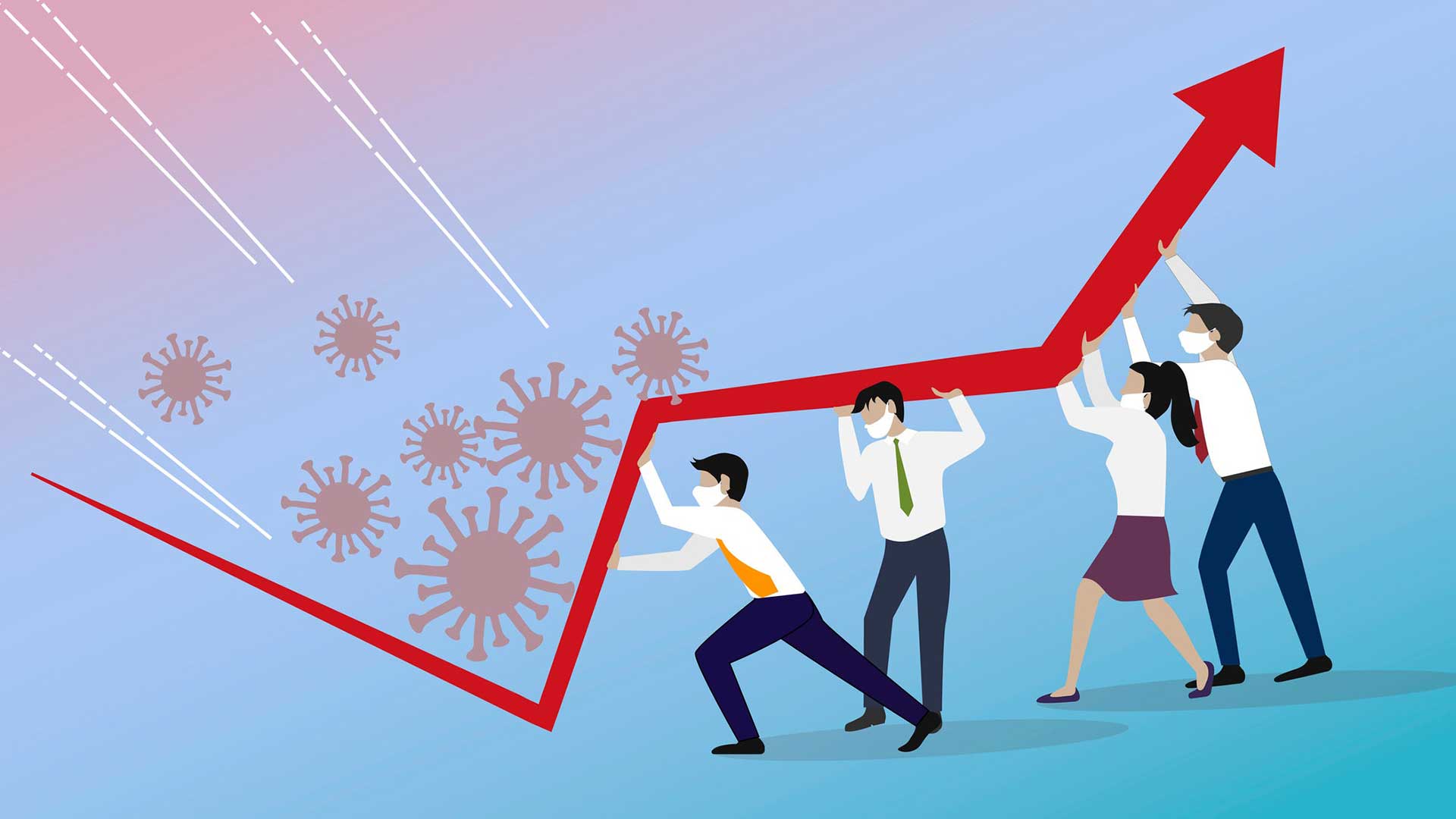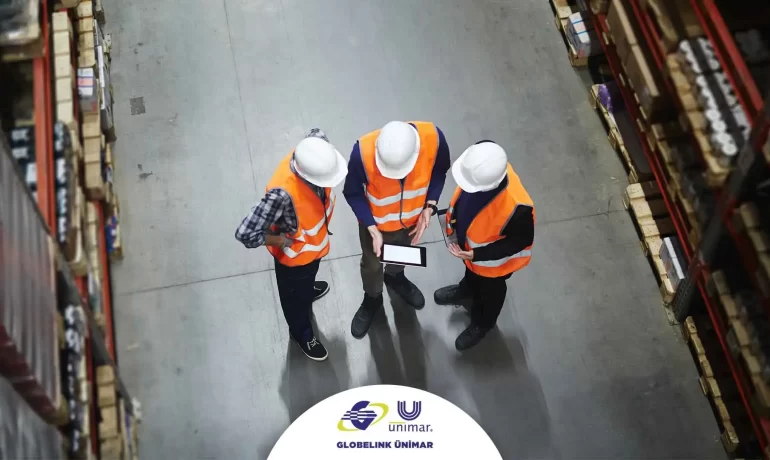
- November 10, 2021
- Blog
What do you think is next for workers and companies after the pandemic? McKinsey’s business and economics research institution, the McKinsey Global Institute (MGI), has revealed the answer to this question with its research. The report, which refers to the keyword as ‘productivity’, draws attention to the unpredictable rise of marketing, social media and e-commerce.
The world, which has been fighting against the COVID-19 pandemic for a year and a half, is constantly developing new methods to eliminate the heavy burden and problems brought by the pandemic. The global economy, which acts in line with the strategies taken by companies as well as individual measures of individuals, contracted by 3.4 percent last year. While the pandemic strained the economies of even developed countries through their health systems, it further deepened the existing problems in low-income countries. At a time when international solidarity should be ensured, countries closed their borders, and globalization suffered a break. But beyond that breakout, the way people work changed fundamentally.
The Economy was Under Quarantine, as Well
Due to the pandemic, every country, without exception, closed its borders and primarily protected the health of its citizens. The closure, interruption of production and restrictions experienced in this period caused the global business life to be quarantined. But companies had to make an urgent maneuver to get out of quarantine.
Industry professionals who wanted to reverse the wind during the pandemic, which destroyed the traditional way of doing business, increased their productivity by developing new methods.
The world, which contracted by 3.4 percent in 2020, entered a serious recovery period in 2021. While the country’s economies were experiencing obstacles in 2020, it turned its negative course into positive with the new strategies it implemented in 2021. The International Monetary Fund (IMF) predicts that the global economy will grow by 6 percent in 2021 and by 4.9 percent in 2022. Behind this success lies the rapid adaptation of the countries and companies that quarantined their economies to the new world order.
Productivity in Business Life Increased
The first footsteps of change were seen in business life, working hours and places, and ultimately in marketing methods. Industry professionals who wanted to reverse the wind during the pandemic, which destroyed the traditional way of doing business, first started to work by taking various precautions and measures in the workplace. Except for non-essential sectors, production processes started to be managed from home.
The demand for online platforms increased. Digital transformation, automation and the use of artificial intelligence in business processes were accelerated. Firms tried to manage sudden demand fluctuations and increase efficiency. This led sector representatives to marketing methods that would affect direct sales. Everything that could be done online resulted in enhanced productivity.
In the new world order, where all needs from health to shopping, from education to food consumption are met through digital channels, consumers quickly adapted to this process. In 2021, when the star of e-commerce is shining, Turkey has broken records in this field. SimilarWeb, the world’s leading website traffic measurement and analysis service, announced the list of the most visited e-commerce and shopping sites in the world. Trendyol was the only company in Turkey to be in the top 20.
Big retailers around the World are using the products in their warehouses to manage the growing demand for e-commerce and started to get help from industrial robots that would enable them to select, sort and follow.
Only the e-commerce field in the world grew by 18 percent on an annual basis during the pandemic, and it was announced that the world e-commerce volume in 2020 was 4.3 trillion dollars. As of last year, Turkey increased its share of the cake with magnificent momentum, as well. Turkey’s e-commerce volume increased by 66 percent compared to 2019 and rose from 136 billion Liras to 226 billion 200 million Liras. This was an important indicator of the changing face of marketing.
The motto of life, ‘Life Fits into Home’, led consumers to e-commerce during the pandemic. While a decrease was observed in general commerce activities at the beginning of the pandemic, an increasing trend started in e-commerce, contrary to the market.
The ‘2020 e-commerce data’ announced by the Turkish Ministry of Trade in April confirm this. It was announced that 9,9 billion Liras and 4,4 percent of it consisted of purchases made from abroad. The share of retail trade in total e-commerce was 64 percent. The number of orders in e-commerce increased by 68 percent compared to 2019, from 1 billion 366 million to 2 billion 297 million.
‘Speed’ Gained Importance in Logistics
Digitalization is entering our lives faster than many people believe. Because the pandemic marked a turning point for the country’s economies: New patterns of consumer and business behavior emerged at an extraordinary speed and many of them seem to be permanent.
Marketing has had an active role in the explosion of the targeted e-commerce increase in the last five years around the world with the pandemic. One of the most important actors in this acceleration, where the importance of ‘speed’ increased significantly, is the ‘Logistics Industry’. While expanding their domestic partial distribution networks, companies increased warehousing services and opened new offices, taking ‘speed’ under control.
What’s Next for the Business Life in the Post Covid-19 Recovery?
McKinsey&Company deals with the business world from different perspectives in its report “What’s next for consumers, workers and companies in the post-COVID-19 recovery?” While the results of the research reveal that the share of high-paid employment in the health sector and STEM (science, technology, engineering and mathematics) fields will continue to increase, it also underlines that a strong increase is expected in occupations in growing business fields with the development of the green economy.
Logistics activities were expected to decrease before the pandemic; it is expected to increase thanks to the new delivery economy. It is also emphasized that some workers will need to switch to areas that require special skills, higher socio-emotional capacity and are likely to find jobs in much higher wage brackets. Demand for many other occupations could also decline by 2030, including positions such as customer service and salespeople, administrative assistants and accountants, food service jobs and office support roles.
The Trend for Artificial Intelligence will Increase After the Pandemic
In the research, there is also a reference to Industry 4.0, the rising trend of the last period. The main subject of industrialization is that the use of robots is rapidly adapting to every field rather than just being used in industry. The report, which reveals that productivity is expected to increase by 1 percent annually with the increasing use of robots, indicates that businesses increased the use of digital tools, automation and artificial intelligence during the pandemic in order to adapt to changing conditions.
Major retailers worldwide, such as Amazon, Walmart, and Target, are using the products in their warehouses to manage the growing demand for e-commerce and started to get help from industrial robots that would enable them to select, sort and follow. At the same time, the use of artificial intelligence-supported chatbots in communication with customers has become widespread. McKinsey experts point out that if these bold steps continue after the pandemic, annual productivity could increase by 1 percent each year until 2024.
Businesses embarked on a bold burst of innovation and rapid decision-making in response to the deepest economic shock since World War II. According to another McKinsey survey, companies digitized many activities 20 to 25 times faster than they previously thought possible. In a survey conducted by McKinsey in December 2020, ¾ of the executives in North America and Europe said they expected investment in automation to increase by 2024.
“WITH OUR DIGITAL ACHIEVEMENTS, WE CONTRIBUTE TO THE TRANSFORMATION OF OUR CUSTOMERS, AS WELL”
Globelink Ünimar Field Sales Manager Mr. Alper Eryılmaz stated that the current pandemic, which has affected the world, reminded us that we should forget what we know about many issues in sales and continue to move forward by revising the rest. As Globelink Ünimar, the ‘Sales Faculty’ under the umbrella of Ünimar Academy, which is at the forefront of our company’s leading values, has become one of our strongest leverage in this challenging transition period. This faculty, which serves our sales teams in all our regional offices, ensures the continuity of the company’s performance in this challenging period with the trainings and meetings it holds every month. It contributes to our adaptation to the developing and changing world.
Considering the advantages it provides after the rapid establishment and adoption of the remote working culture, which entered our lives with the pandemic, it is inevitable that this working method will remain in our lives after the pandemic. The culture of working remotely was as new to our customers and suppliers as it was to our sales teams. As Globelink Ünimar, we have completed and progressed this process, in which we sometimes learned and taught, and we continue to transfer our knowledge. By improving our digitalization process and infrastructure that we started before the pandemic, we experienced a rapid internalization in the online working world. With the support of Ünimar Academy, we ensured that the process reached all units and operations at the same speed and rate.
During this period, we developed and tightened our relations with our existing customers. In addition, we significantly increased the number of new customers. By transferring our own development, transformation and adaptation to our customers, we have ensured that the Globelink Ünimar ecosystem progresses in a holistic structure and that we have all got prepared for the new period together. In this period, we have shared information, developments and changes quickly with our customers and suppliers, and by taking their changing needs more into account, we have provided them with fast access to information with online load tracking. Again, we have introduced the option of payment by credit card to facilitate our customers’ payment processes. In the near future, we will further develop this option, providing other benefits as well as speed and convenience.
We have not only built the digital world to ensure the continuity of business and trade but also strengthened our productivity and mental fitness with our online activities. Through the content we offer through our social media accounts, we continue to convey this vitality and pleasure, along with our cultural, artistic and social suggestions to our followers.
“We Continue to be One of the Strong Actors”
Globelink Ünimar Inside Sales Manager Mr. İlker Alicikoğlu stated that the pandemic was a catalyst that changed the balance and rules of the game, especially in commercial activities, and carried the world to completely different competitiveness in a very short time. In this changing and reshaping period, those who made their infrastructure, production, logistics processes, sales and marketing digital-friendly managed to exit this process with gains.
As a company that accepts adaptation to the codes of the developing world as a rule and acts with the mission of keeping itself up to date, we continue to be one of the strong actors in competitiveness by continuing the issue of digitalizing our infrastructure and processes, which we started before the pandemic.
As the sales department, we took very fast and important steps in sales activities in a short time during this period. We started digitalizing our sales and marketing strategy before the pandemic. We are going through a very comfortable contact process with the adaptation of our target audiences to these channels during the pandemic. All of our products and services are published on all our social media channels at regular intervals and we create new demands with these remarkable promotions. Apart from this, we carried out our visits with our customers before the pandemic to online platforms and paid more visits in less time.
As Globelink Ünimar, we consider every institution and individual that works with us, contact us or we contact, as part of our family. For this reason, we do for them everything we do for ourselves in this new period.
“Automation will Take Logistics to Different Dimensions”
The logistics industry continues to increase its importance all over the world with the impact of the pandemic. The shortening of delivery times strengthened the role of the logistics industry as a bridge in B2B and B2C activities. In the near future, we expect that with the wide use of digitalization and automation, logistics will take it to many different dimensions and turn into a multi-discipline.
At the point we have reached today, supply chain management, which is an integral part of logistics, is of maximum importance. For this reason, it has become the most important issue to manage all the logistics needs of customers under a single roof within the scope of the supply chain and to serve them as a logistics department within their own structure.
Artificial Intelligence is Both Changing and Transforming
Today, we can see the clues that we will
The Future of the Cargo Market is Shaped by e-commerce
The e-commerce industry has been growing rapidly since the



